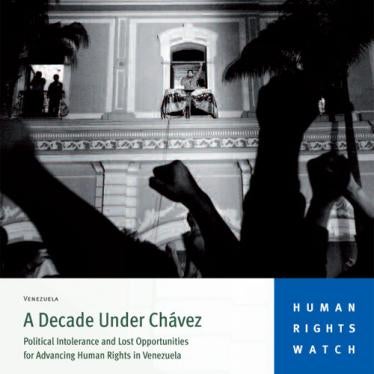A constitutional amendment proposed by a pro-government committee in Venezuela’s National Assembly would allow the suspension of due process protections, Human Rights Watch said today.
The amendment would eliminate the constitutional prohibition on suspending due process rights in states of emergency. Under Venezuela’s constitution, these rights include, among others: the right to the presumption of innocence and to a fair trial; the right to an attorney; the right against self-incrimination; the right of a defendant to know the charges and evidence against him; and the right against double jeopardy.
“This amendment, if approved, would allow President Chávez to invoke a state of emergency to justify suspending certain rights that are untouchable under international law,” said José Miguel Vivanco, Americas director at Human Rights Watch.
Human Rights Watch noted that under international law many of these rights are considered so fundamental that countries are not permitted to derogate from their obligations to respect them – even in a state of emergency. Both the United Nations Human Rights Committee and the Inter-American Court of Human Rights have made this clear.
The proposed amendments would also eliminate previous constitutional time limits on states of emergency. In addition, the amendments eliminate the requirement that the Constitutional Tribunal review the decree regulating the suspension of rights during times of emergency, as well as language establishing that such a decree “meet the requirements, principles, and guarantees established in the International Covenant on Civil and Political Rights and the American Convention on Human Rights.”
Proponents of the amendment have argued that the government needs to have free rein to suspend due process and other rights, including the right to freedom of information, in the event of another coup attempt like that which occurred in April of 2002 against President Hugo Chávez.
However, Human Rights Watch pointed out that it is during highly politicized emergencies that it becomes most pressing to respect basic due process guarantees, such as protections against arbitrary detention and the right to a fair trial.
“Recent Latin American history shows that it is precisely during states of emergency that countries need strong judicial protections to prevent abuse,” said Vivanco. “Otherwise, what has historically prevailed is the brutal exercise of power.”







